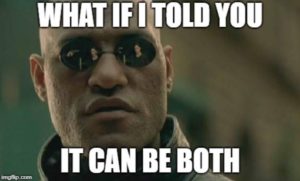Today, December 6, 2018, marks the 29th year since
Geneviève Bergeron (born 1968)
Hélène Colgan (born 1966)
Nathalie Croteau (born 1966)
Barbara Daigneault (born 1967)
Anne-Marie Edward (born 1968)
Maud Haviernick (born 1960)
Maryse Laganière (born 1964)
Maryse Leclair (born 1966)
Anne-Marie Lemay (born 1967)
Sonia Pelletier (born 1961)
Michèle Richard (born 1968)
Annie St-Arneault (born 1966)
Annie Turcotte (born 1969)
Barbara Klucznik-Widajewicz (born 1958)
were murdered for being women.
In the deadliest mass shooting in Canadian history, a man stalked the classrooms, hallways, and cafeteria of the École Polytechnique de Montréal, separated men and women and targeted women to shoot.
Claiming he was “fighting feminism” and calling the women “a bunch of feminists,” in an attack that took just under 20 minutes, he killed 14 women and injured 14 other people, 10 of them women, before killing himself. In his suicide note, he blamed feminists for “ruining his life” and listed 19 Quebec women whom he considered to be feminists and apparently wished to kill.
I was 10 years old and in grade 5 when this happened. I saw the news in the Toronto Star, which I read every morning, and was horrified, but I didn’t really grasp the import of what had happened. I wondered if Geneviève Bergeron was related to Mr. Bergeron, my bus driver.
A few years later, I asked my grade 7 teacher Mr. Taylor about his white ribbon, but his answer didn’t really help me understand what some crazy guy with a gun had to do with feminism. I went to an all girls school, but I didn’t really get the point; I just assumed it was so we didn’t get distracted by the boys.
As I grew up, I had creepy encounters with men of course; didn’t we all? Men standing uncomfortably close on the empty bus platform (they probably didn’t realize I was only 13). Men following you into the parking garage to invite you for coffee (he was probably heading to the subway too). Men commenting on your appearance with their voices or just with their eyes. I was a city kid; I starting taking the subway in grade 6. Creepy dudes were just part of the landscape.
I went to university. I studied; I partied; I dated. The one encounter that stood out to me was when I, giddy from lack of sleep (a combination of a term-paper all-nighter and a unwelcome late-night phone call from an ex), ventured alone to the campus bar and met a very nice guy. He invited me back to his place and we all know where this story ends except — PLOT TWIST — nothing happened. We talked – about really deep, emotional things, both of us – and then he said, “How about I walk you home?”
Segue time:
Did you know that THE PC POLICE HAVE BANNED BABY IT’S COLD OUTSIDE FROM BEING PLAYED ON THE RADIO EVER AGAIN BECAUSE LIBERAL SNOWFLAKES ARE TRIGGERED?
Well, not exactly. The song, touted as a “Christmas Classic” (it’s not), has been removed from circulation on selected radio stations.
Over the past little while, this catchy call-and-answer duet has come under scrutiny. Viewed in historical context, some say, the lyrics reflect a woman demurring in order to continue the date without inducing society’s judgement. On the other hand, viewed through today’s #metoo lens, we hear a predatory “nice guy” refusing to take no for an answer as his date repeatedly attempts to politely extricate herself.
But…..what if I told you it can be both???
Both these interpretations tell us the same thing: Context matters. Viewed in different contexts, the song has different meanings. Heard by different people, the song has a different impact. MIND BLOWN, right? It can be both perfectly fine AND offensive at the same time.
However.
However.
However.
Impact matters too. In fact, I would argue, impact matters MOST.
That’s why when a person of colour says, “Please don’t dress your kid in costumes steeped in cultural appropriation this Halloween,” you don’t say, “But we LOVE Pocahontas!” That’s why when your officemate says, “Strong scents give me migraines could you please not use your wax warmer?” you don’t say, “But Passionfruit Punchbowl makes me happy inside!”
And it’s why, when a whole lot of people say, “This super-catchy song’s lyrics are upsetting because they remind me of all the times I had to stay calm and polite while in a vulnerable position with Schrodinger’s rapist,” “I don’t like my kids hearing music that normalizes the idea that if a man just keeps saying the same thing in response to his date’s protests eventually she’ll give in,” or worse, “I’ve sung this tune before and it didn’t end well,” it’s kind of a dick move to say, “Actually, you wouldn’t be so traumatized if you just understood the historical context.”

Because impact matters, and the weight of, “It’s not fair that I can’t occasionally hear this song on the radio in addition to at home or on my iPod whenever I want,” is not equivalent to the weight of, “This song makes me feel terrible when it starts playing and I can’t choose to avoid it if it’s randomly going to come on when I’m out in public.”
TL/DR: When people say, “That thing makes me feel really shitty,” arguing for your right to be a dick is kind of dickish.
Oh, and the connection to the first half of this post?
Well, interestingly enough (and this flies in the face of the whole “historical context” explanation): When performing the song with his wife, composer/lyricist Frank Loesser often introduced himself as “the evil of two Loessers,” a fine play on words as well as a telling indictment of his role in the song. The song’s sheet music names the two parts, “Wolf” and “Mouse,” again not particularly evocative of the “female empowerment” viewpoint.
Misogyny was alive and well 83 years ago when the song was written. It was alive and well 29 years ago when a gunman massacred 14 women in Montreal because he felt feminists had ruined his life. It was alive and well 4 years ago when another gunman killed 6 people in Isla Vista to punish women for rejecting him. It was alive and well 8 months ago when a man used a van as a weapon to kill 10 people in Toronto, again in retribution for female rejection And it is alive and well today, where there are countless Nice Guys™ out there who are also one frustrated sexual encounter away from violence.
Do we really have to turn one arguably questionable song into a rallying point for “You’re just being too sensitive-“ness?
~ karyn


I totally agree with you. This song makes me SO uncomfortable because it puts me right back in that situation. My coworkers were just discussing it, belittling and laughing at those who get offended easily. I didn’t speak up. I should have.
Ugh – what an awful experience. Just remember to put on your own oxygen mask first – speaking up is important, but not at the expense of your own self-care or safe work environment.
Very well said. Thank you.